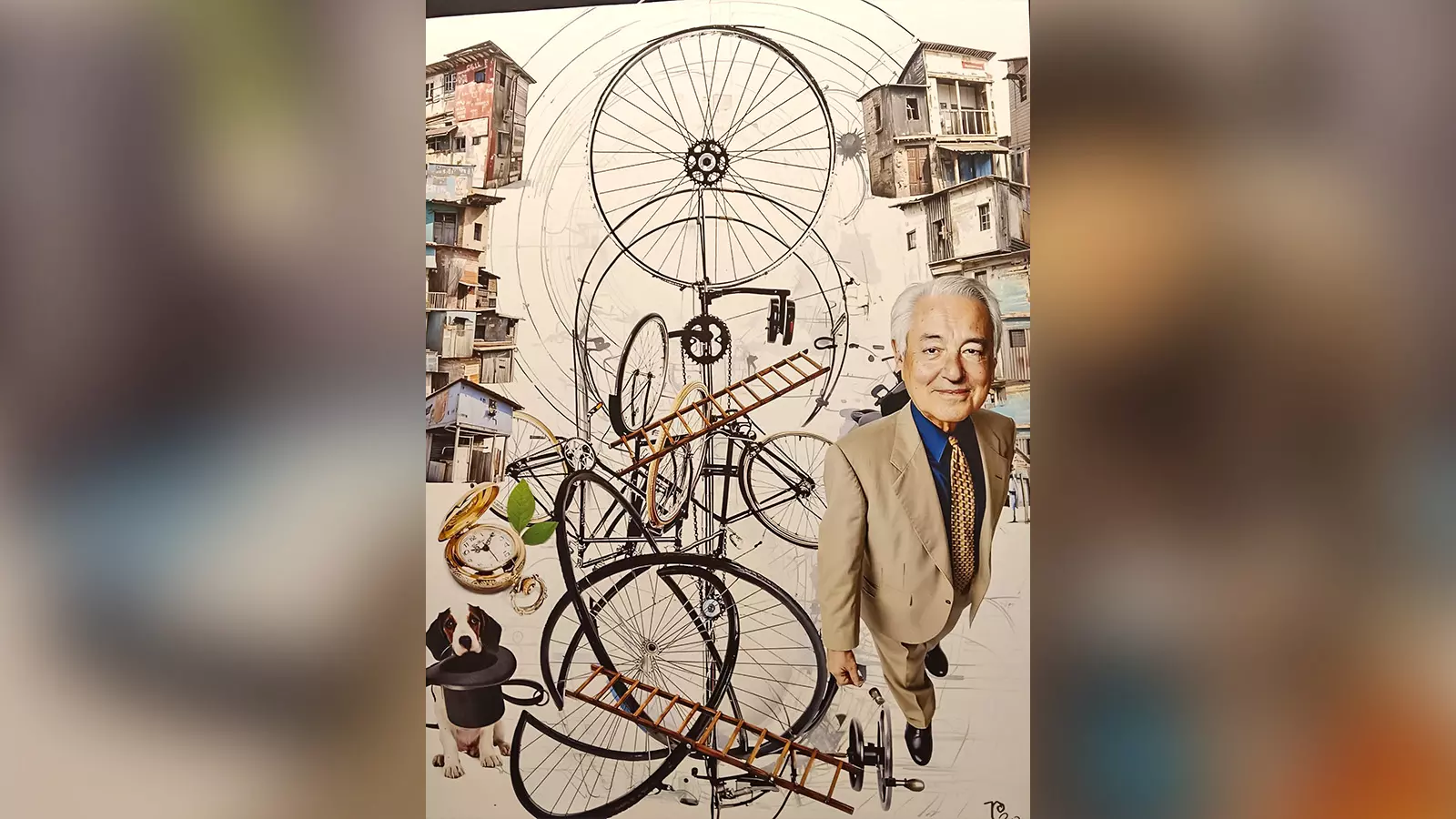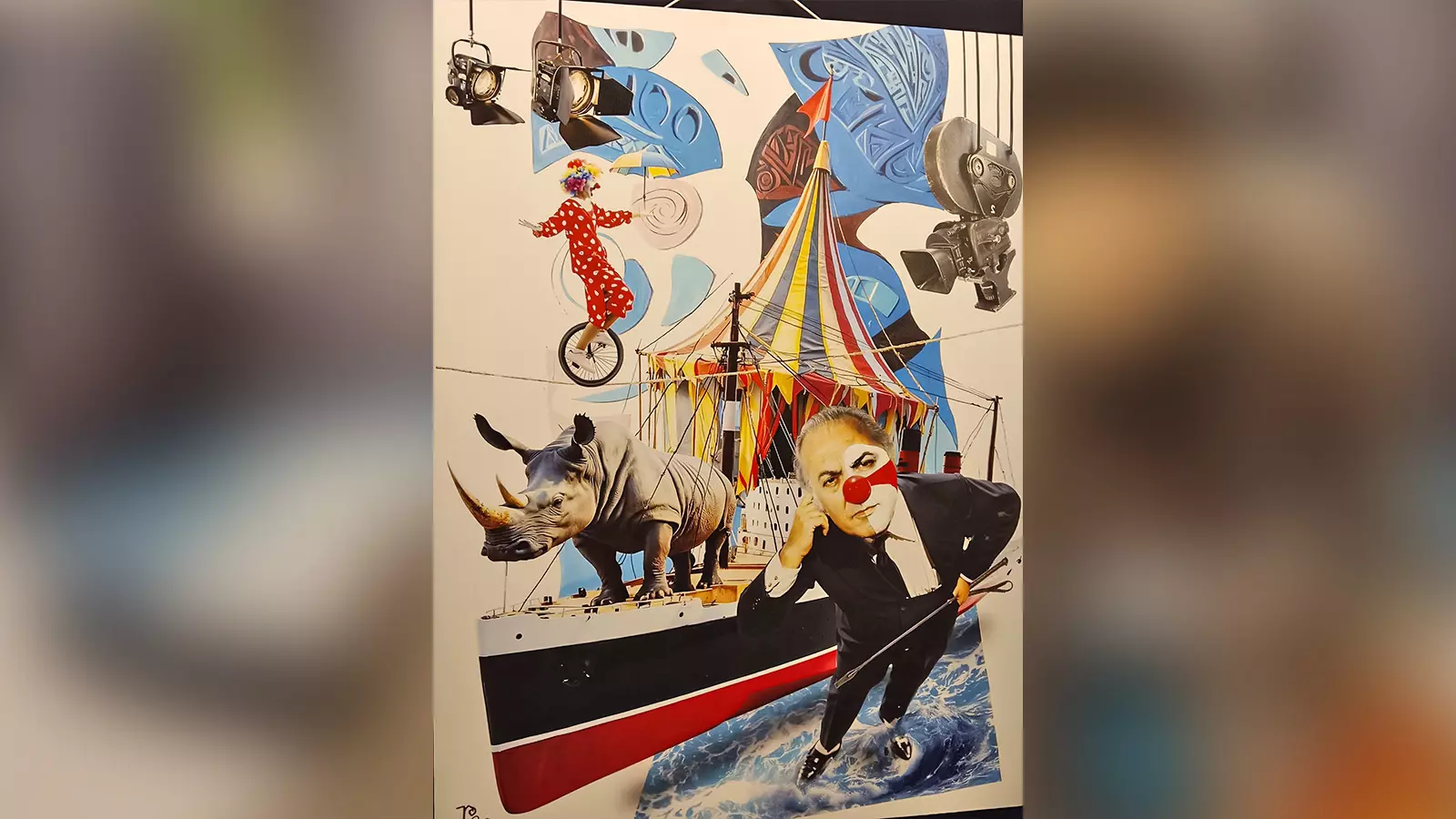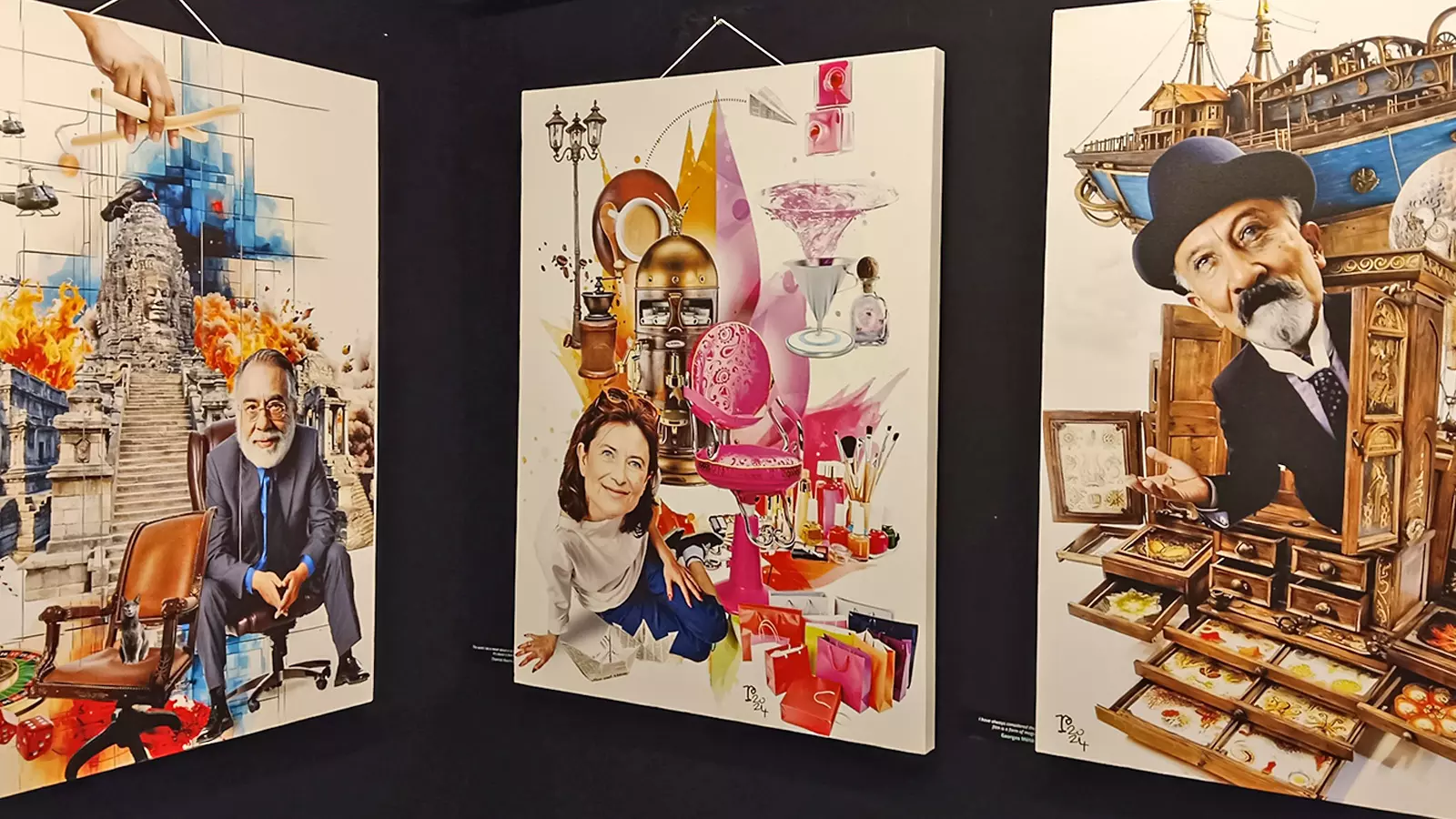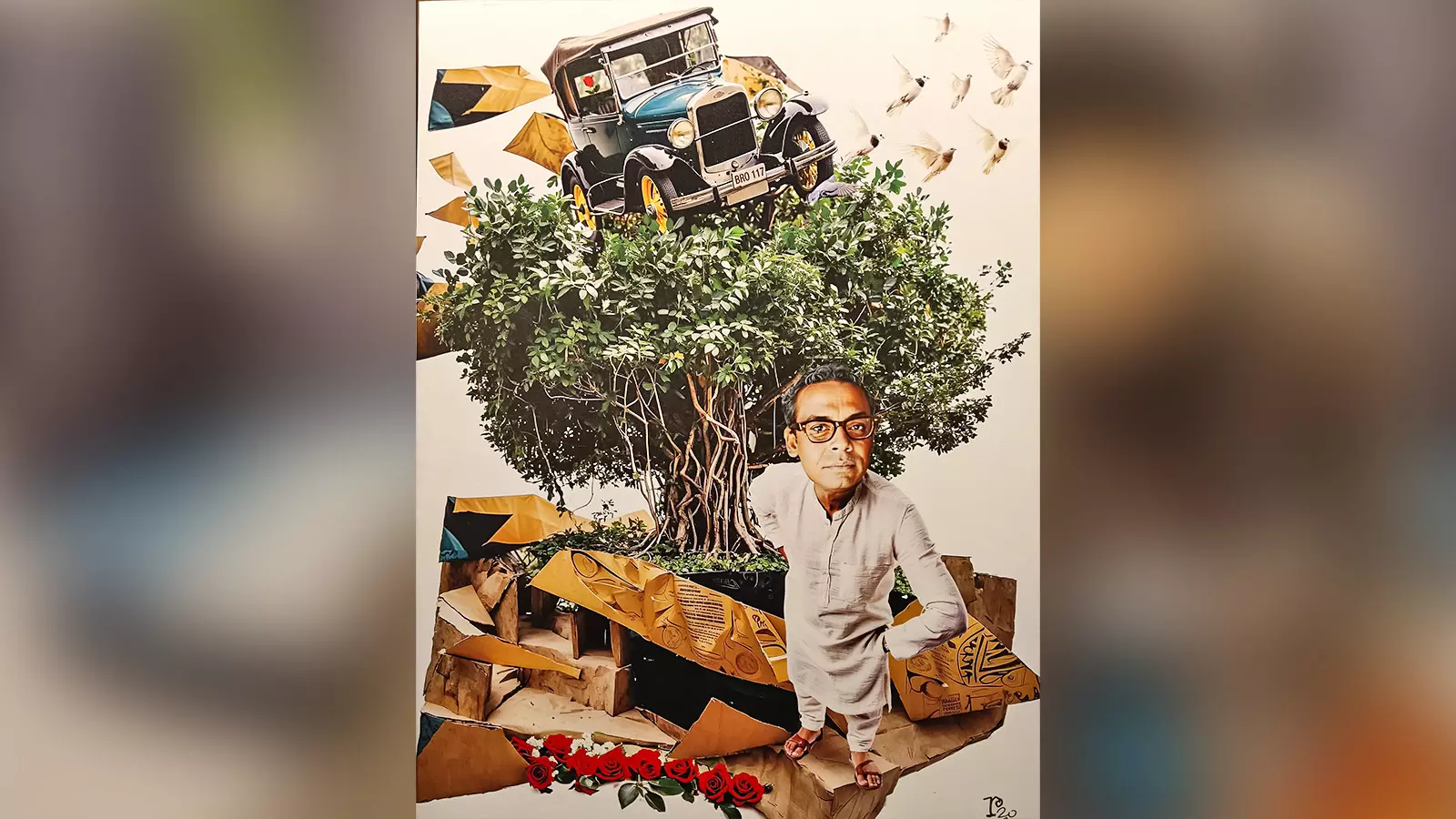
- Home
- India
- World
- Premium
- THE FEDERAL SPECIAL
- Analysis
- States
- Perspective
- Videos
- Sports
- Education
- Entertainment
- Elections
- Features
- Health
- Business
- Series
- In memoriam: Sheikh Mujibur Rahman
- Bishnoi's Men
- NEET TANGLE
- Economy Series
- Earth Day
- Kashmir’s Frozen Turbulence
- India@75
- The legend of Ramjanmabhoomi
- Liberalisation@30
- How to tame a dragon
- Celebrating biodiversity
- Farm Matters
- 50 days of solitude
- Bringing Migrants Home
- Budget 2020
- Jharkhand Votes
- The Federal Investigates
- The Federal Impact
- Vanishing Sand
- Gandhi @ 150
- Andhra Today
- Field report
- Operation Gulmarg
- Pandemic @1 Mn in India
- The Federal Year-End
- The Zero Year
- Science
- Brand studio
- Newsletter
- Elections 2024
- Events
Cinema alchemy: A tribute to 50 renowned filmmakers

“Neorealism is not the style of an aesthetic. It is a philosophy of life,” reads the caption under the portrait of renowned Italian filmmaker Vittorio De Sica. If you think the portrait here is a normal one depicting the face or head of Sica, then you are wrong. Drawn by Razi Muhammed, the digital painting has elements from Sica’s famous movies. Images of a ladder and a bicycle (taken...
“Neorealism is not the style of an aesthetic. It is a philosophy of life,” reads the caption under the portrait of renowned Italian filmmaker Vittorio De Sica. If you think the portrait here is a normal one depicting the face or head of Sica, then you are wrong. Drawn by Razi Muhammed, the digital painting has elements from Sica’s famous movies. Images of a ladder and a bicycle (taken from his neorealist masterpiece Bicycle Thieves), Flike, the dog, with a hat in his mouth (from Umberto D) and a smiling Sica standing in front of old Roman buildings…The portrait here transcends mere representation, capturing the dynamic essence of the filmmaker through scenes and situations in his films that resonate timelessly with his audience.
Titled ‘Reimagining the Master Alchemists of World Cinema’, Razi has done 50 such digital paintings of the masters of world cinema, including Federico Fellini, Ingmar Bergman, Andrei Tarkovsky, Alfred Hitchcock, Jean-Luc Godard, Akira Kurosawa, G Aravindan, John Abraham, Ritwik Ghatak, Satyajit Ray, Agnès Varda and Márta Mészáros. Each portrait is an experience in itself. Even though the idea of giving a tribute to the masters of world cinema triggered Razi five years ago, he started his work only eight months ago.

Vittorio De Sica, the director of Bicycle Thief and Umberto D.
“I have been watching the films of these masters since I was 15 years old. The elements, techniques and scenes in their movies stood the test of time in my memory. The images and scenes that I liked in those movies always came forward while I started drawing. Since I was fond of these movies, there was a smooth flow of images and scenes, which I could portray on the canvas without much trouble,” said Razi, an artist-filmmaker based in Thiruvananthapuram.
Depiction of details from the movies of renowned filmmakers, particularly those belonging to the New Wave in the late 1950s, was challenging. But Razi had a solution. “Some masters have made more than 30 movies and it was difficult for me to include all the elements and scenes in my painting. So I chose three or four movies from that master and started my work. I tried not to miss significant elements in the movie and that’s how I finished all these 50 compositions,” he said. If he had doubts, he would watch that particular movie again. “Even though I remember the scenes from the films of these great filmmakers, I at times needed some clarity on an event narrated in the movie. I would watch the movie again and again in such cases,” he added. However, Razi mostly focused on one or two famous films of a particular director in most of the works that he did.

Italian filmmaker Federico Fellini
Filmmaker TK Rajeev Kumar, who curated Razi’s paintings titled ‘Cinema Alchemy: A Digital Art Tribute’ organised as part of the recently concluded International Film Festival of Kerala (IFFK) at Tagore Theatre in Thiruvananthapuram, said Razi’s paining provided a unique perspective, blending the dreamlike qualities of surrealism with the precision of hyper-realism. “The filmmakers featured in “Cinema Alchemy” are pioneers who have used cinema as a catalyst for societal transformations. As a filmmaker, curating this exhibition gave me an opportunity to further explore how the cinematic storytelling of these master filmmakers intersects with pressing social issues of their time,” said Rajeev Kumar, according to whom colour and light play a pivotal role in Razi’s artistry, enhancing the thematic and emotional depth of each painting.

Swedish director Ingmar Bergman
The exhibition is one of its kind as no one has so far done a tribute to filmmakers in the way Razi did. It is also a celebration of the synergy between digital art and the transforming power of cinema. The make-shift tent of the street performing group in Fellini’s La Strada and the rhinoceros onboard in And The Ship Sails On stand testimony to it. “I watched all the movies of Bergman, Tarkovsky and Hitchcock so it was easy for me to relate them with the paintings done by Razi. It was a great experience as each work took me to the cinematic world of the director. A perfect sense of colour and light adds to the selection of themes,” said Ajay Kumar, a movie-enthusiast based in Kollam.

A look from Razi Muhammed Cinema Alchemy series
The Hitchcockian topography exposes the master’s intense sense of suspense in Razi's painting. In a tribute to Tarkovsky, Razi placed the Russian filmmaker close to the burning house that the director created in The Sacrifice, one of his masterpieces. A bubble image of a scene from Solaris, another significant work, portrays an intense reaction of the past. A timely composition of images of a chess board from Bergman’s The Seventh Seal and objects from other movies of the Swedish filmmaker offers a great cinematic journey. Razi's paintings stand testimony to his understanding of the works of filmmakers such as Steven Spielberg, Stanley Kubrick, Akira Kurosawa, Martin Scorsese, Mohsen Makhmalbaf, Luis Bunuel to name a few. Razi also pays tribute to Indian filmmakers which includes Ritwik Ghatak, Satyajit Ray, John Abraham, Adoor Gopalakrishnan, G Aravindan, Mrinal Sen and Shaji N Karun. The image of the car used in Ritwik Ghatak’s Ajantrik, the donkey in John Abraham’s Agraharathil Kazhuthai, and the traditional houses in Bengal in Satyajit Ray’s movies appear with a sense of being.

Renowned Indian filmmaker Ritwik Ghatak
It was Razi’s experience in the field of art and cinema that helped him come up with a rich tribute like this. In 2016, Razi directed a feature film titled Velutha Rathrikal (White Nights), an adaptation of Fyodor Dostoevsky’s novel which won the Kerala State Film Award for best-adapted screenplay. His docufiction film The Third Eye of Resistance won the Cinema of Resistance award at Signs international film festival. He has done more than 15 solo painting exhibitions and his art works have been showcased in India as well as abroad. Razi said he wanted to exhibit his works abroad. “I have covered 50 filmmakers across the world. And all have made great films. Many advised me to exhibit these works abroad so that it will get into more people. A talk is on,” he added.
